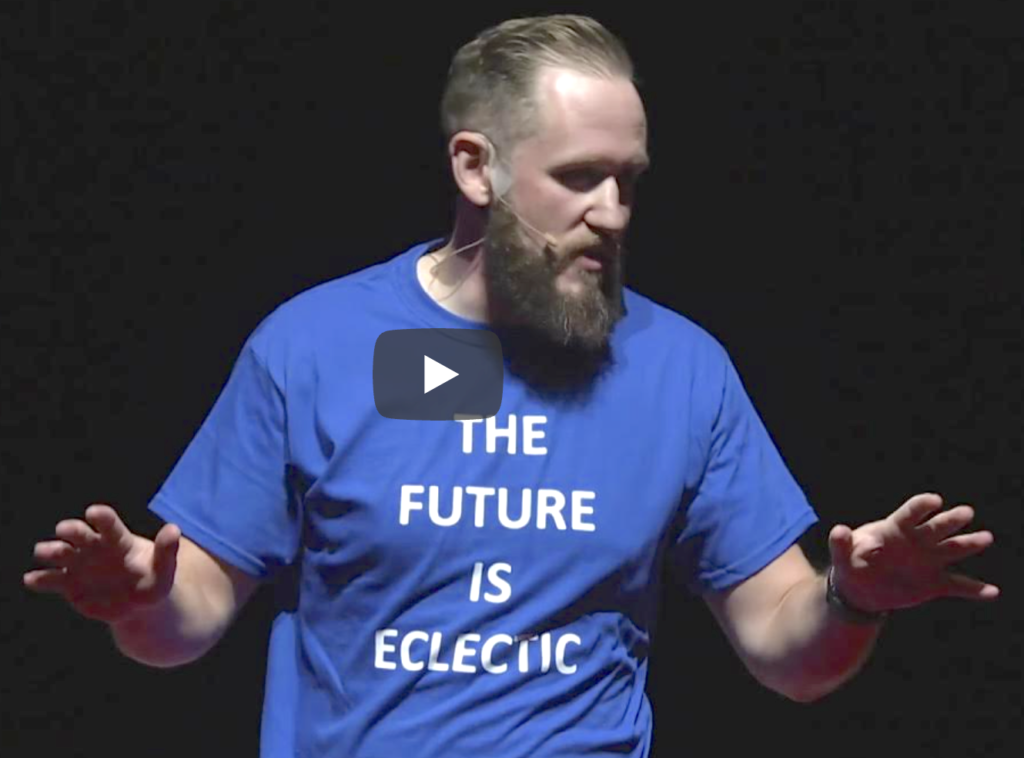Our Energy Future is Eclectic
Energy matters, and the world’s energy future will be eclectic. For an overview see this 2020 TEDxSanAntonio talk by Graham Conway The Contradictions of Battery Operated Vehicles. The video now has a warning for viewers from TED: We’ve flagged this talk because it falls outside the content guidelines TED gives TEDx organizers. And: claims in this talk lack scientific support.
Debaters researching federal energy and transportation policies can decide for themselves as they continue researching the science and economics of Electric Vehicles (EVs), and federal EV subsidies and mandates. Why not let EVs power themselves into our lives through competition. Tesla seems to be doing okay crafting EVs and an electric EV marketing strategy. Sure, Telsa had and continues to receive subsidies from state and federal governments, but now those subsidies flow heavily to EV competitors (in the US and overseas). So, why not phase out all EV subsidies now, allowing Tesla to thrive and less nimble EV makers to fall by the wayside)? (More on EV debates below.)

Many responded to the Graham Conway TEDx talk with counterclaims and arguments. And the talk was nearly four years ago. Many articles, policy studies, books and videos make claims both for and against the “energy transition” with shifting from ICE to EV transportation (Internal Combustion Engines to Electric Vehicles).
Consider some energy reality relevant to federal subsidies for EVs and PEVs (Plug-in Electric Vehicles), explained by Donald van der Vaart in The Hill:
Perverse incentives created by PEV tax credits mean the rich benefit from PEVs. It’s the poor who get stiffed. The poor will pay higher electricity costs thanks to “clean energy” mandates that increase electric bills. They’ll miss out on high-paying jobs, thanks to the failure of blue-state governors to approve natural gas pipelines. Even if the poor could afford a PEV, range and performance limitations turn a long commute from an affordable, outlying community into a battery-charging budget buster.
Environmentalists should lead the charge against electric vehicles (The Hill, 2/1/2021)
Dr. van der Vaart further explains in this John Locke Foundation interview.
……………………..
An update on the uphill road to EVs: Taxpayers Bankroll Electric Vehicles Even as Fewer People Buy Them (Reason, Oct. 26, 2023). On current EPA EV mandates:
Earlier this year, the Environmental Protection Agency (EPA) announced new rules that would require as many as two of every three vehicles sold in the U.S. by 2032 to be electric. In July, an automotive lobby trade organization argued that while it supported a shift to green technology, the EPA’s proposal was “neither reasonable nor achievable” on its intended timeline.
……………………..
The Soho Forum hosted a recent debate on EVs, with the motion: Will electric cars disappoint environmentalists? The motion: Between now and 2035, electric vehicles in the consumer market will disappoint environmentalists by remaining a product bought mainly by the well-heeled minority.
…………………..
EV truck mandates are a problem too. California’s Electric Truck Mandate: 19 States Sue (MasterResource, Nov. 21, 2023):
California’s Advanced Clean Fleets (ACF) Regulation goes into effect on January 1, 2024. The ACF requires that truck operators buy only Zero Emissions Vehicle (ZEV) trucks for medium-duty and heavy-duty trucking operations as early as January 2024.
However, energy reality is:
“Diesel trucks can travel about 1,200 miles after filling the tank in 15 minutes; the range of electric trucks is about 150-330 miles, and recharging takes hours. Electric truck cabs cost two-to-three times as much as diesel cabs and weigh about 10,000 pounds more than comparable diesel versions, reducing net freight carried by as much as 20 percent.”
…………………………..

Another overview of EV economic realities, is this featured video at the Empowering American Newsroom is Peter Zeihan explaining:Why EVs Aren’t The Green Tech Panacea
